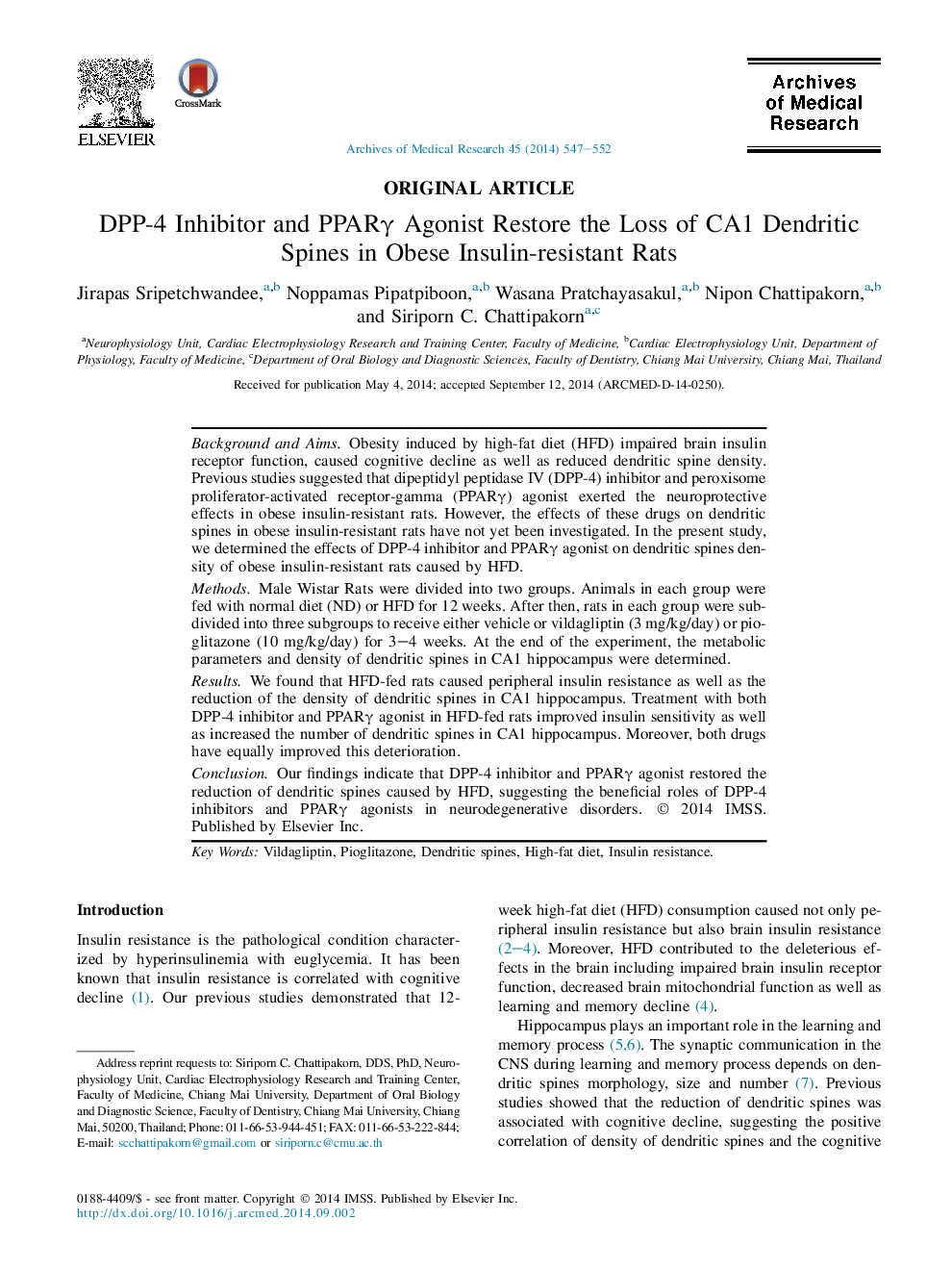| Article ID | Journal | Published Year | Pages | File Type |
|---|---|---|---|---|
| 6149136 | Archives of Medical Research | 2014 | 6 Pages |
Background and AimsObesity induced by high-fat diet (HFD) impaired brain insulin receptor function, caused cognitive decline as well as reduced dendritic spine density. Previous studies suggested that dipeptidyl peptidase IV (DPP-4) inhibitor and peroxisome proliferator-activated receptor-gamma (PPARγ) agonist exerted the neuroprotective effects in obese insulin-resistant rats. However, the effects of these drugs on dendritic spines in obese insulin-resistant rats have not yet been investigated. In the present study, we determined the effects of DPP-4 inhibitor and PPARγ agonist on dendritic spines density of obese insulin-resistant rats caused by HFD.MethodsMale Wistar Rats were divided into two groups. Animals in each group were fed with normal diet (ND) or HFD for 12 weeks. After then, rats in each group were subdivided into three subgroups to receive either vehicle or vildagliptin (3 mg/kg/day) or pioglitazone (10 mg/kg/day) for 3-4 weeks. At the end of the experiment, the metabolic parameters and density of dendritic spines in CA1 hippocampus were determined.ResultsWe found that HFD-fed rats caused peripheral insulin resistance as well as the reduction of the density of dendritic spines in CA1 hippocampus. Treatment with both DPP-4 inhibitor and PPARγ agonist in HFD-fed rats improved insulin sensitivity as well as increased the number of dendritic spines in CA1 hippocampus. Moreover, both drugs have equally improved this deterioration.ConclusionOur findings indicate that DPP-4 inhibitor and PPARγ agonist restored the reduction of dendritic spines caused by HFD, suggesting the beneficial roles of DPP-4 inhibitors and PPARγ agonists in neurodegenerative disorders.
